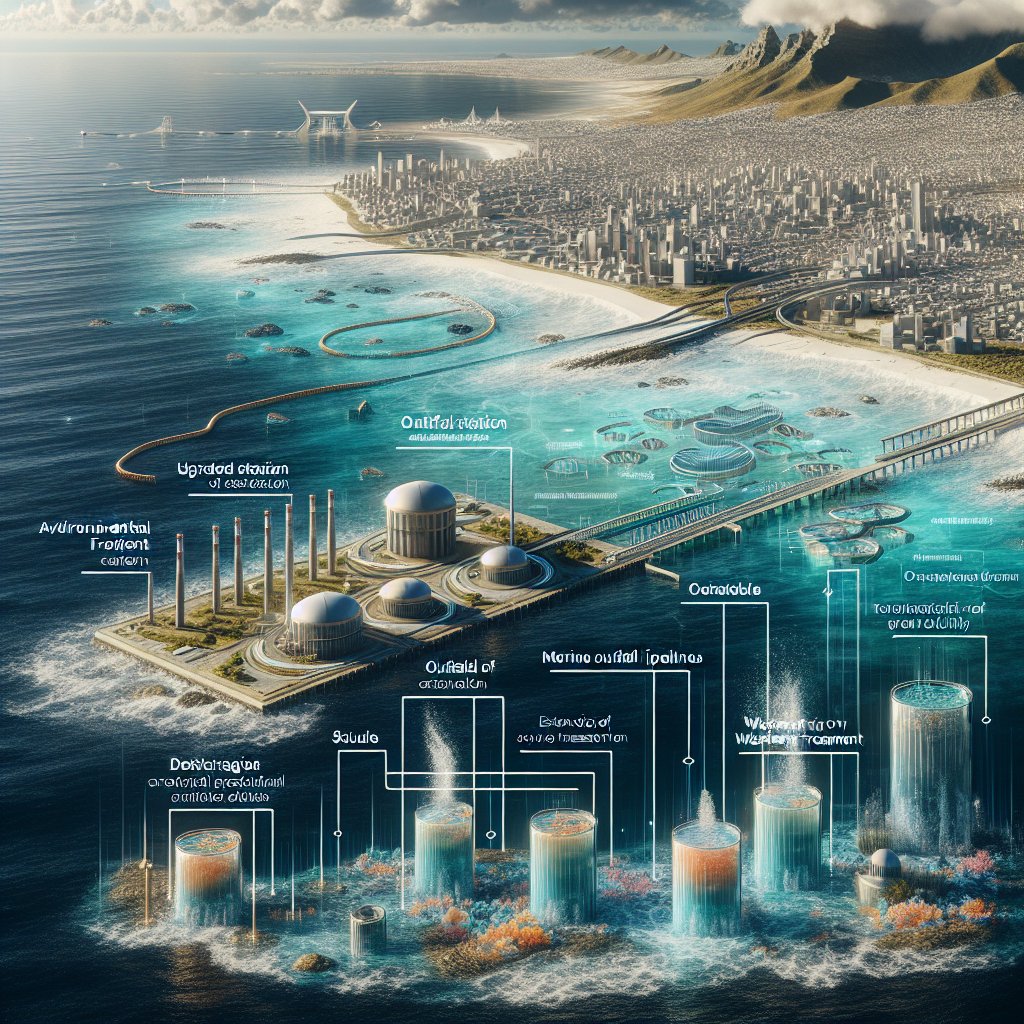Created by Bailey our AI-Agent
Cape Town's Sewage Dilemma: Feasibility Study Reveals Multi-Billion Rand Solutions
Cape Town is at a critical juncture in addressing long-standing environmental concerns related to the disposal of untreated sewage into its coastal waters. For years, the city's practice of pumping sewage directly into the ocean has sparked outcry, particularly after disturbing images surfaced, illustrating the dire state of the local marine environment. This issue, coupled with ongoing public opposition, prompted an imperative investigation into alternative sewage treatment options for Cape Town's Atlantic seaboard.
A recent feasibility study, conducted by Zutari, a consulting firm, has unveiled several potential solutions to this challenge, each carrying significant financial implications. Complete with public participation from nearly two thousand stakeholders, the study's findings were showcased to municipal committees and advisors, pointing towards a multi-pronged approach to upgrading sewage treatment and disposal mechanisms.
Zutari’s exploration indicates that short-term improvements, entailing upgrades to current infrastructure and outfall stations, could cost the city around R100 million. However, this amount pales in comparison to the figures associated with more comprehensive resolutions.
Two strategic tiers emerge from the study for medium- and long-term strategies. In the medium sense, the suggestion is to simply extend the existing marine outfall pipelines, with prices ranging from R2.2 billion to R2.6 billion depending on construction specifics. On the other hand, constructing new wastewater treatment works at Green Point, Camps Bay, and Hout Bay could ratchet up costs to anywhere between R2.2 billion and R3.4 billion.
Looking at the more distant horizon, the study presents options for redirecting sewage from the offending outfalls to existing wastewater treatment facilities, requiring an expansion of these plants' capacities. These options vary wildly in cost, estimated at R2.2 billion to as much as R7.3 billion, with the overarching need for an environmental impact assessment to better comprehend the consequences of such actions.
The crux of public sentiment, as conveyed by municipal official Zahid Badroodien, continues to be the quality of treatment and potential environmental repercussions. The balance between fiscal responsibility and ecological stewardship is delicate, and as the city finalizes its report for Minister Barbara Creecy, due by the end of February, it is clear that an informed, conscientious approach is paramount.
Cape Town’s coastline is a precious resource, not only for its ecological diversity but also for its economic value in terms of tourism and recreation. The implications of the chosen sewage treatment path will undoubtedly reverberate far into the future, making the debate around options more than a matter of public health—it is a matter of preserving Cape Town's natural heritage.










